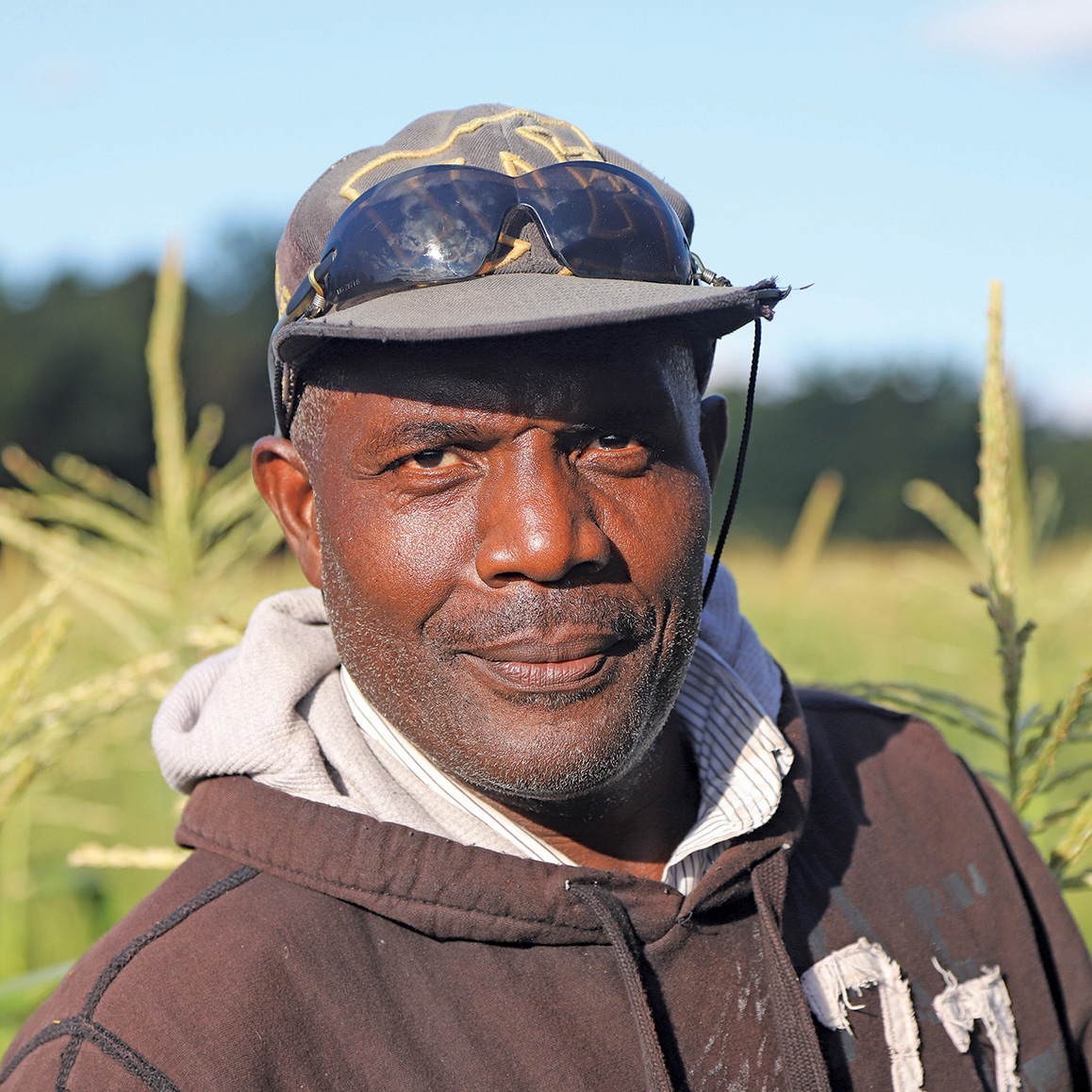A drive through Southern Georgian Bay’s farmlands in the fall is redolent with beauty and bounty. But how, you may wonder, do its gardens grow? It takes a team, starting with the farmer and ending up, often, with migrant workers. These workers come mostly from Mexico and Jamaica in this region, arriving in the spring to prune the apple trees, and then staying all season to tend them and pick their fruits. Migrant workers enter Canada under temporary work programs that are intended to help farmers find workers for jobs Canadians won’t do.
These workers’ important, but perhaps underappreciated labour over several months—six days a week, 10 hours a day at minimum wage—supports an apple industry that generates $619.5 million in the province and, as of 2020, more than 7,000 full-time direct and indirect jobs. About a quarter of that economic activity comes from the Southern Georgian Bay region.
Here, Henry Orr, 60, reflects on his work—and his dreams.
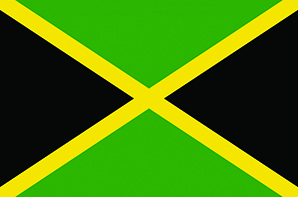
“Sometimes it’s really hard. But you must continue the journey. Don’t give up.”
— Henry Orr —
On The Bay: Where did you grow up?
Henry Orr: I grew up in the countryside of Portland Parish in the northeast of Jamaica in the mountains.
OTB: What kind of work do you do at home?
HO: I grow coffee. I have an acre of coffee. I pick it and carry it to the buyers.
OTB: How did you first find out about the work opportunities here?
HO: The first time I heard about it in 1993, I said I would like to try it. You get a card and go to Kingston (Jamaica). They call you to come for a medical to get on the program. You have to pass the selection process, then go through some tests.
OTB: What was it like arriving in Canada for the first time?
HO: When I first saw it in 1993, it surprised me. When I heard about Canada I didn’t know about the trees. But that was a rough year, rough year. It was cold. The summer of 1993 wasn’t a good summer.
OTB: How long are you away from home each year?
HO: Seven months every year. I leave Jamaica in March and work until the end of October or the first week in November. Half my life is here.
OTB: What is the work like that you do here?
HO: All kinds of work. In the spring we prune the upper branches, spray herbicide and a lot of other different jobs on all the crops from pumpkin to squash to tomatoes and flowers. The main job, though, is to pick apples until it finishes. Every day. We cooperate with one another to make it easier. Otherwise, work would fall all on one person.
OTB: Is this place like a second home?
HO: It’s a second home for seven months each year. I am here more than I am in Jamaica.
OTB: How does your family handle your absence? Do you stay in touch?
HO: I have to provide for them. I have two children. I send money home through Western Union. In 1993 I had to ride a bicycle to Ravenna to where a phone booth was. Now we can make a video call from the farmhouse.
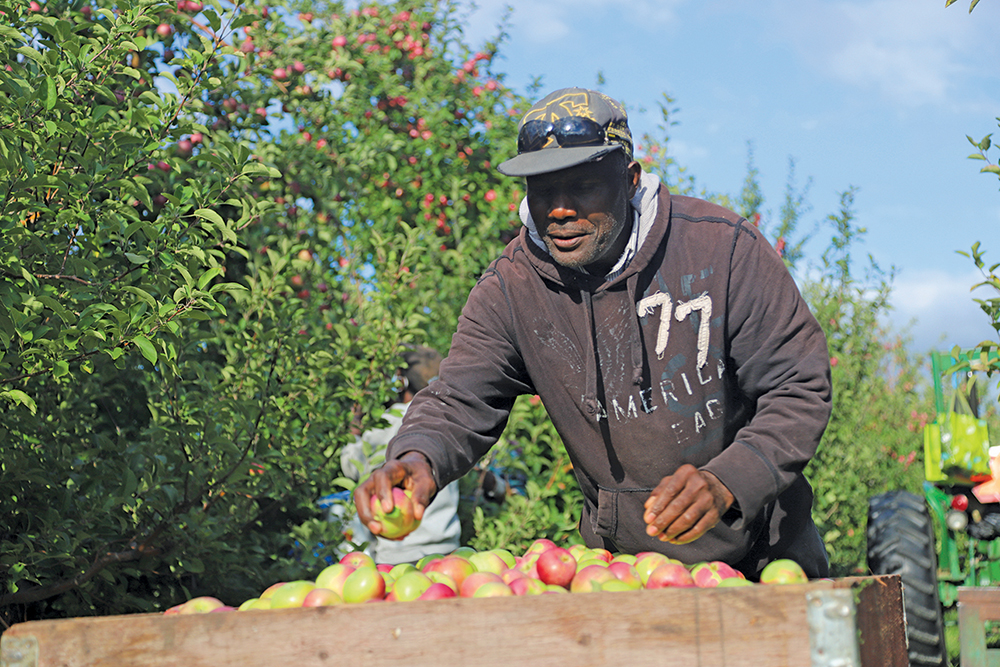
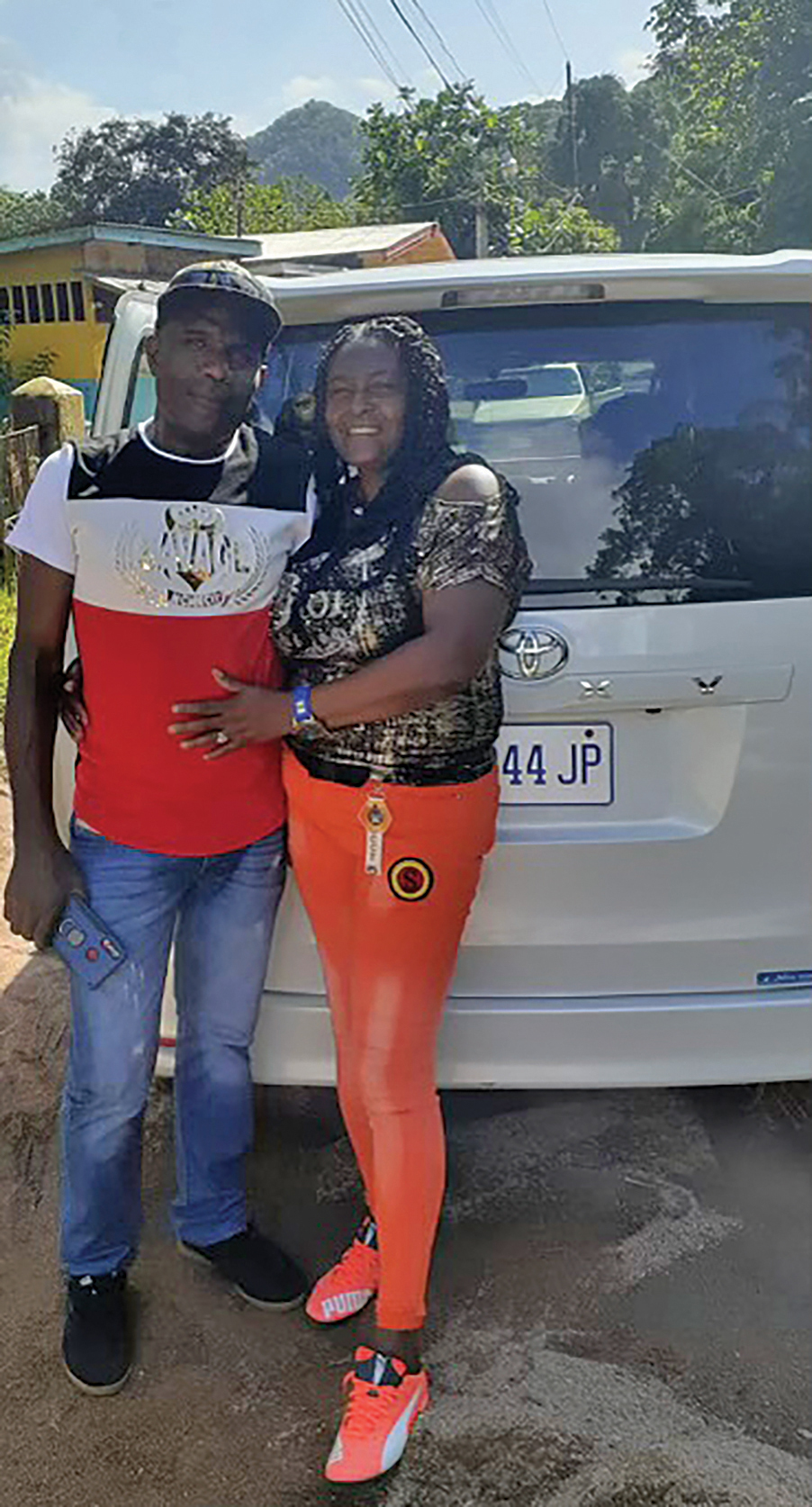
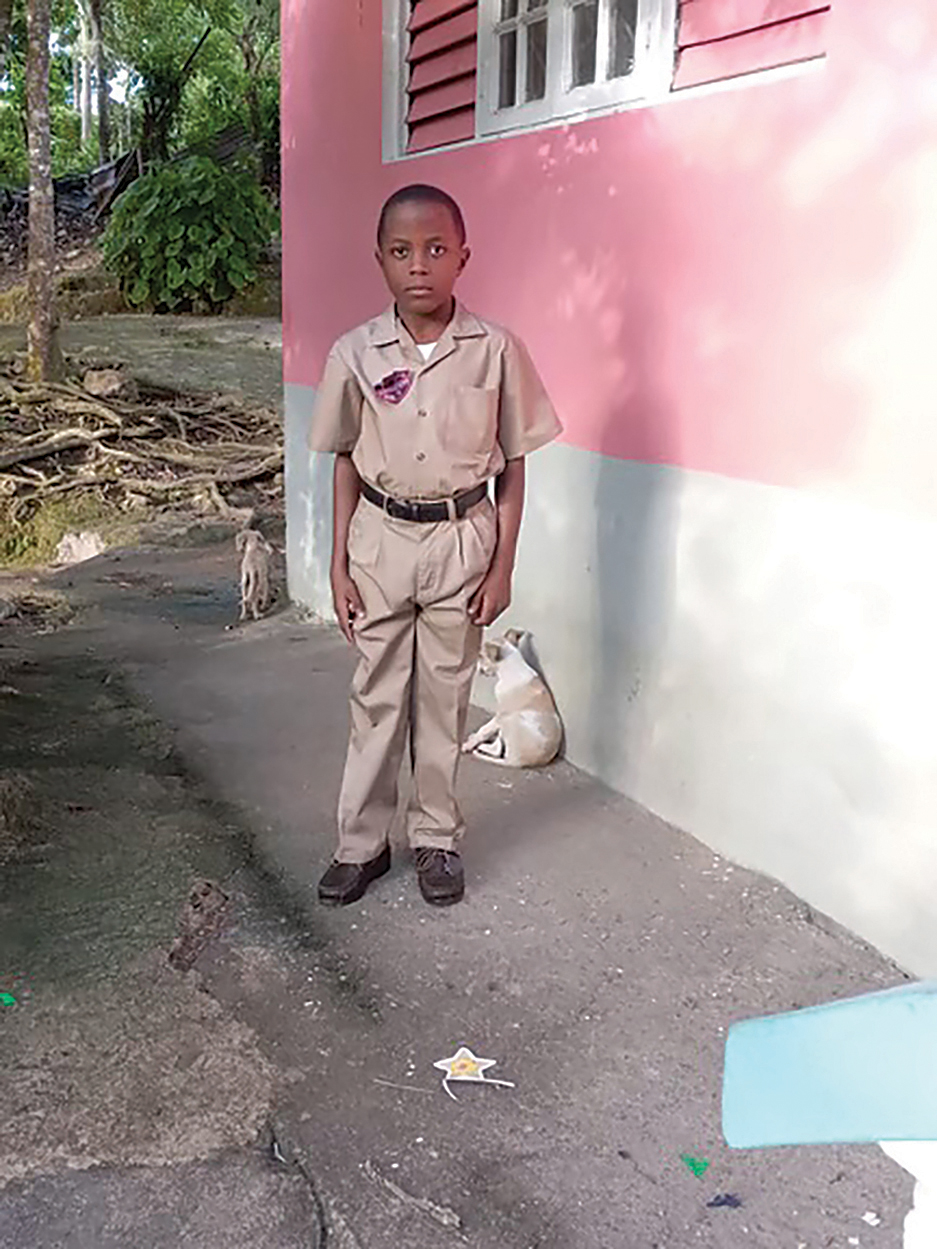
Henry with Beverly Nicole Curtis at home in Jamaica, and nine-year-old Johnny Orr, Henry’s son.
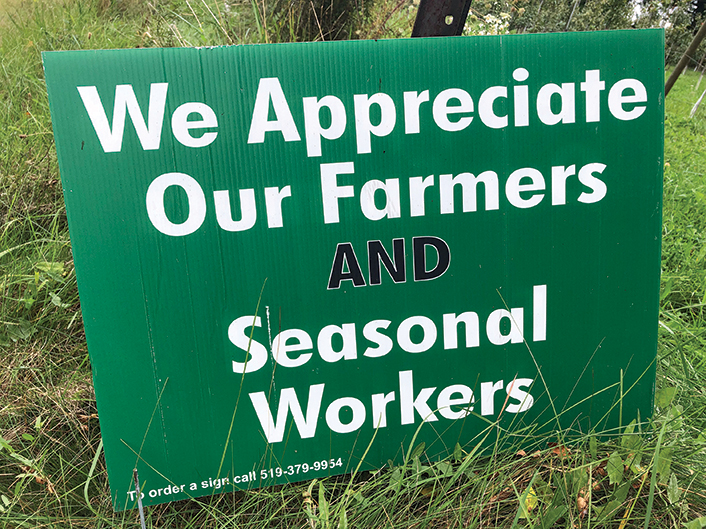
OTB: Is this the main source of income for your family? Does it help you get ahead at home?
HO: Yes, after this job, I must know it will provide for me and my family until I come back.
OTB: What happens when you go home?
HO: Coffee season starts in October. I go right from here, picking apples, to there picking coffee.
OTB: How does your family benefit from your work here?
HO: You have to pay for education in Jamaica. It has helped a lot to pay for my son’s education. And I built a house with money I made here.
OTB: Do you encourage others to come here on the program?
HO: Yes, but it’s harder and harder to get on the program.
OTB: Why do you keep coming back?
HO: In Jamaica sometimes the work is hard to get. If you come here, you are sure of something. If you have a plan to buy something, if you come here, you can achieve that quicker.
OTB: What should people in Southern Georgian Bay know about you and other migrant workers who come here?
HO: They should respect us. We come here to do hard work.
OTB: What would you want to tell the government?
HO: I don’t see why we have to pay that money for unemployment insurance. We don’t live here.
OTB: What is your dream?
HO: We come in for so long and contribute so much to this country. Could they make it easier for us to come to Canada permanently?
OTB: What do you think about when you are working?
HO: Sometimes it’s really hard. But you must continue the journey. Don’t give up.







